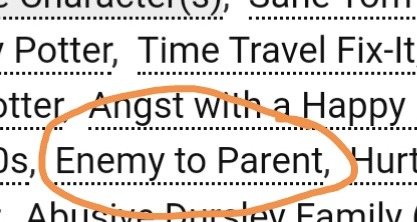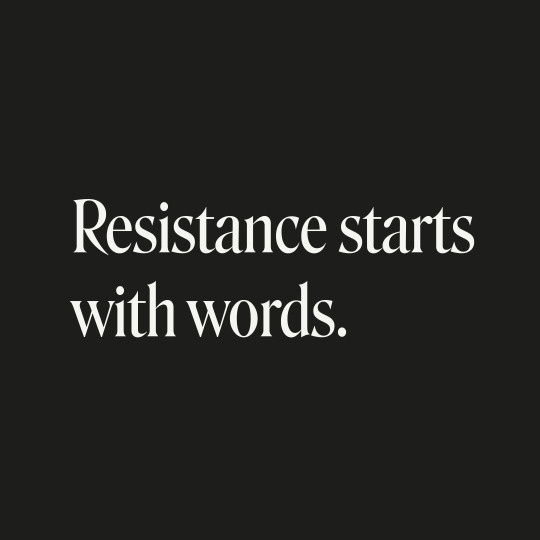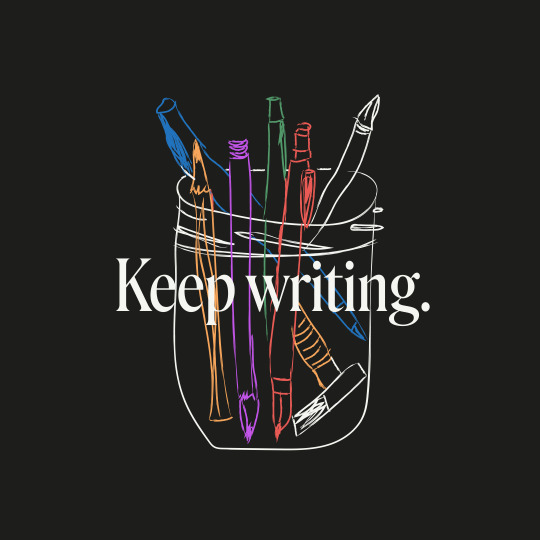Been writing and editing professionally for a decade. In grad school to shift from starving artist to starving scientist, I guess. I’m writing fanfics these days to rekindle my love of the craft and remember how to do fiction. Same username on Ao3 🤠
Don't wanna be here? Send us removal request.
Text
Some tips for using a few words to describe voices
Tone Words, Use tone words to convey the emotional quality of a voice. For example, you can describe a voice as "melodic," "soothing," "sharp," "gentle," or "commanding" to give readers a sense of the tone.
Pitch and Range, Mention the pitch and range of the voice. Is it "deep," "high-pitched," "raspy," or "full-bodied"? This can provide insight into the character's age, gender, or emotional state.
Accent and Diction, Describe the character's accent or diction briefly to give a sense of their background or cultural influences. For instance, "British-accented," "Southern drawl," or "formal."
Volume, Mention the volume of the voice, whether it's "whispering," "booming," "murmuring," or "hushed."
Quality, Use terms like "velvet," "silken," "gravelly," "honeyed," or "crisp" to convey the texture or quality of the voice.
Rate of Speech, Describe how fast or slow the character speaks, using words like "rapid," "slurred," "measured," or "rambling."
Mood or Emotion, Indicate the mood or emotion carried by the voice. For example, a "quivering" voice may convey fear or anxiety, while a "warm" voice may express comfort and reassurance.
Resonance, Describe the resonance of the voice, such as "echoing," "nasal," "booming," or "tinny."
Timbre, Mention the timbre of the voice, using words like "rich," "thin," "clear," or "smoky."
Cadence, Highlight the rhythm or cadence of speech with descriptors like "staccato," "lilting," "rhythmic," or "halting."
Intonation, Convey the character's intonation by saying their voice is "sarcastic," "apologetic," "confident," or "questioning."
Characteristics, If applicable, mention unique vocal characteristics, like a "lisp," "stutter," "drawl," or "accented 'r'."
24K notes
·
View notes
Text
STOP BEING SELF CONSCIOUS ABOUT YOUR CREATIONS STOP SECOND GUESSING WHAT YOU REALLY WANNA DO STOP DEBATING IT'S WORTH. LET YOUR ART SERVE YOU INSTEAD OF THE OTHER WAY AROUND
75K notes
·
View notes
Text
I took a crack at writing my first-ever smut scene and was forced to confront how deep purity culture runs 💀so much feedback saying it was a nice sex scene but not smutty enough and Iike what do you MEAN that nearly killed me lololololll
5 notes
·
View notes
Text
Was scrolling through AO3 and found this gem

Enemy to parent is a trope we have to popularise lmao
95K notes
·
View notes
Text




Reading is political and it always has been. Here are some of the classic books on the banned list that you should definitely check out.
4K notes
·
View notes
Text

(Read on our blog)
Beginning in 1933, the Nazis burned books to erase the ideas they feared—works of literature, politics, philosophy, criticism; works by Jewish and leftist authors, and research from the Institute for Sexual Science, which documented and affirmed queer and trans identities.

(Nazis collect "anti-German" books to be destroyed at a Berlin book-burning on May 10, 1933 (Source)
Stories tell truths.
These weren’t just books; they were lifelines.
Writing by, for, and about marginalized people isn’t just about representation, but survival. Writing has always been an incredibly powerful tool—perhaps the most resilient form of resistance, as fascism seeks to disconnect people from knowledge, empathy, history, and finally each other. Empathy is one of the most valuable resources we have, and in the darkest times writers armed with nothing but words have exposed injustice, changed culture, and kept their communities connected.

(A Nazi student and a member of the SA raid the Institute for Sexual Science's library in Berlin, May 6, 1933. Source)
Less than two weeks after the US presidential inauguration, the nightmare of Project 2025 is starting to unfold. What these proposals will mean for creative freedom and freedom of expression is uncertain, but the intent is clear. A chilling effect on subjects that writers engage with every day—queer narratives, racial justice, and critiques of power—is already manifest. The places where these works are published and shared may soon face increased pressure, censorship, and legal jeopardy.
And with speed-run fascism comes a rising tide of misinformation and hostility. The tech giants that facilitate writing, sharing, publishing, and communication—Google, Microsoft, Amazon, the-hellscape-formerly-known-as-Twitter, Facebook, TikTok—have folded like paper in a light breeze. OpenAI, embroiled in lawsuits for training its models on stolen works, is now positioned as the AI of choice for the administration, bolstered by a $500 billion investment. And privacy-focused companies are showing a newfound willingness to align with a polarizing administration, chilling news for writers who rely on digital privacy to protect their work and sources; even their personal safety.
Where does that leave writers?
Writing communities have always been a creative refuge, but they’re more than that now—they are a means of continuity. The information landscape is shifting rapidly, so staying informed on legal and political developments will be essential for protecting creative freedom and pushing back against censorship wherever possible. Direct your energy to the communities that need it, stay connected, check in on each other—and keep backup spaces in case platforms become unsafe.
We can’t stress this enough—support tools and platforms that prioritize creative freedom. The systems we rely on are being rewritten in real time, and the future of writing spaces depends on what we build now. We at Ellipsus will continue working to provide space for our community—one that protects and facilitates creative expression, not undermines it.
Above all—keep writing.
Keep imagining, keep documenting, keep sharing—keep connecting. Suppression thrives on silence, but words have survived every attempt at erasure.

- The Ellipsus team
4K notes
·
View notes
Text
remember that even if it’s bad, it’s still better than the draft you didn’t write.
2K notes
·
View notes
Photo








Beth Greene Appreciation Week ∟ Favourite episode; Still, 4x12
1K notes
·
View notes
Text
good traits gone bad explained
good traits gone bad - Part III
Ambitiousness - While ambitiousness is generally seen as a positive trait, driving individuals towards achieving their goals and aspirations, there can be a downside if it becomes excessive. An ambitious character can come across as ruthless.
Optimism - Optimism can lead to increased happiness and resilience, but not if it becomes unrealistic. Excessive optimism can lead individuals to underestimate potential risks or challenges, which can result in poor decision-making.
Diligence - Constantly working diligently without proper breaks can lead to burn out. Diligence can also mean that the person is not able to bend strict rules, but rather makes sure to follow them. It can make them resistance to change.
631 notes
·
View notes
Text
Tips for writing flawed but lovable characters.
Flawed characters are the ones we root for, cry over, and remember long after the story ends. But creating a character who’s both imperfect and likable can feel like a tightrope walk.
1. Flaws That Stem From Their Strengths
When a character’s greatest strength is also their Achilles' heel, it creates depth.
Strength: Fiercely loyal.
Flaw: Blind to betrayal or willing to go to dangerous extremes for loved ones.
“She’d burn the whole world down to save her sister—even if it killed her.”
2. Let Their Flaws Cause Problems
Flaws should have consequences—messy, believable ones.
Flaw: Impatience.
Result: They rush into action, ruining carefully laid plans.
“I thought I could handle it myself,” he muttered, staring at the smoking wreckage. “Guess not.”
3. Show Self-Awareness—or Lack Thereof
Characters who know they’re flawed (but struggle to change) are relatable. Characters who don’t realize their flaws can create dramatic tension.
A self-aware flaw: “I know I talk too much. It’s just… silence makes me feel like I’m disappearing.” A blind spot: “What do you mean I always have to be right? I’m just better at solving problems than most people!”
4. Give Them Redeeming Traits
A mix of good and bad keeps characters balanced.
Flaw: They’re manipulative.
Redeeming Trait: They use it to protect vulnerable people.
“Yes, I lied to get him to trust me. But he would’ve died otherwise.”
Readers are more forgiving of flaws when they see the bigger picture.
5. Let Them Grow—But Slowly
Instant redemption feels cheap. Characters should stumble, fail, and backslide before they change.
Early in the story: “I don’t need anyone. I’ve got this.”
Midpoint: “Okay, fine. Maybe I could use some help. But don’t get used to it.”
End: “Thank you. For everything.”
The gradual arc makes their growth feel earned.
6. Make Them Relatable, Not Perfect
Readers connect with characters who feel human—messy emotions, bad decisions, and all.
A bad decision: Skipping their best friend’s wedding because they’re jealous of their happiness.
A messy emotion: Feeling guilty afterward but doubling down to justify their actions.
A vulnerable moment: Finally apologizing, unsure if they’ll be forgiven.
7. Use Humor as a Balancing Act
Humor softens even the most prickly characters.
Flaw: Cynicism.
Humorous side: Making snarky, self-deprecating remarks that reveal their softer side.
“Love? No thanks. I’m allergic to heartbreak—and flowers.”
8. Avoid Overdoing the Flaws
Too many flaws can make a character feel unlikable or overburdened.
Instead of: A character who’s selfish, cruel, cowardly, and rude.
Try: A character who’s selfish but occasionally shows surprising generosity.
“Don’t tell anyone I helped you. I have a reputation to maintain.”
9. Let Them Be Vulnerable
Vulnerability adds layers and makes flaws understandable.
Flaw: They’re cold and distant.
Vulnerability: They’ve been hurt before and are terrified of getting close to anyone again.
“It’s easier this way. If I don’t care about you, then you can’t leave me.”
10. Make Their Flaws Integral to the Plot
When flaws directly impact the story, they feel purposeful rather than tacked on.
Flaw: Their arrogance alienates the people they need.
Plot Impact: When their plan fails, they’re left scrambling because no one will help them.
Flawed but lovable characters are the backbone of compelling stories. They remind us that imperfection is human—and that growth is possible.
9K notes
·
View notes
Text
If you love a slow-burn with morally gray characters and Beth Greene being a badass, you might like this (or hate it, idk)
Started writing this after watching Dead City and trying to decide how wild it would be to ship Negan and Maggie. Then I spent a lot of time pondering something even more unhinged that I ended up finding very fun. And, so, here we are.
The Edge of Redemption:
Beth Greene didn’t think she’d live this long. After losing her home and everyone she loved, she wasn’t sure she had anything left to live for. But at the Sanctuary, she found something she never expected – the strength to begin again.
Some see her as an outsider. Others, a rising force. But Negan? He sees her as something else entirely.
As Beth fights to keep hope alive in a world ruled by violence, lines blur, alliances shift, and survival is no longer enough.
But war is coming. And when the fight reaches her doorstep, she’ll be forced to confront the past she thought left her behind – and the question that haunts her: what kind of future is she really fighting for?
#twd#the walking dead#fanfiction#ao3#ao3 fanfic#ao3 writer#beth greene#negan smith#writers on tumblr#writing#deep down i'm a bethyl shipper like the rest of you CALM DOWN#the feminism in my body fighting for its life with this ship but i don't care#beth deserved better#can we stop killing cool women characters off to further a man's arc#i'm kind of undecided on how this ends#slow burn#enimes to lovers
5 notes
·
View notes
Text
Sometimes you read a line from a book and it’s like something from your own head or something from your journal. And that part of you is a bit more defined, a bit sharper, and a bit easier to understand and explain to others.
77K notes
·
View notes
Text
''what if my writing isn't good eno--'' what if it's a reflection of your soul. what if it has a place in this world. what if you write it anyway
55K notes
·
View notes
Text
Me when someone offhandedly mentions my special interest or something that relates to it

12K notes
·
View notes


